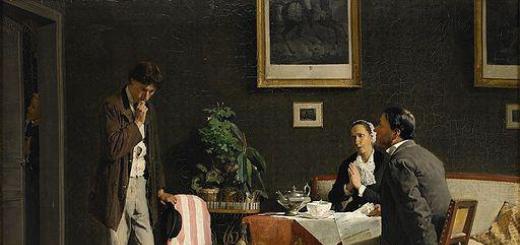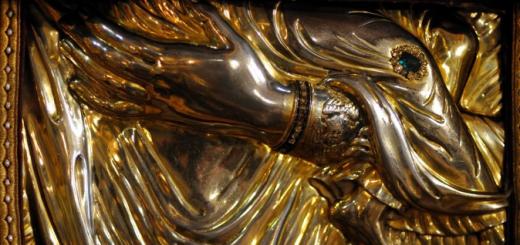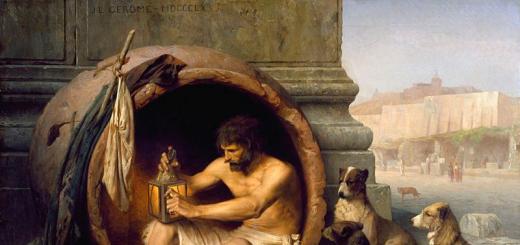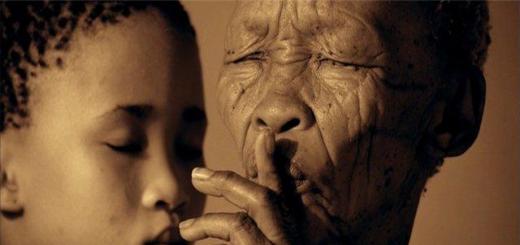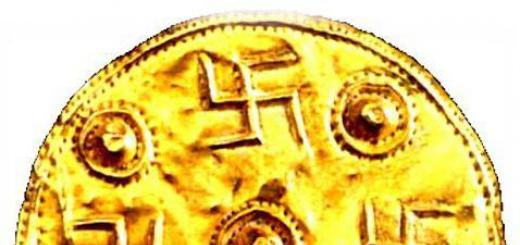In Antiquity, humanity made a cultural leap and expanded the horizons of knowledge.
This served as fertile ground for the emergence of schools of philosophy. Then the teaching of Socrates was formulated, supplemented and revised by his illustrious student Plato. This teaching has become a classic, it remains relevant in our time. + But there were other philosophical schools, for example, the school of Cynics, founded by another student of Socrates - Antisthenes. And a prominent representative of this trend was Diogenes of Sinop, he became famous for eternal disputes with Plato, as well as outrageous, and sometimes very vulgar antics. It turns out that outrageous people met in ancient times. Among them came across and philosophers, like Diogenes of Sinope.
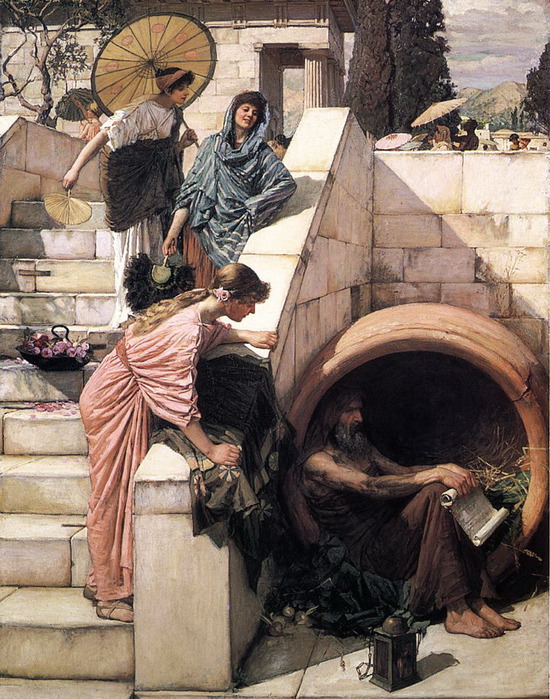
From the biography of Diogenes:
Little is known about the life of Diogenes, and the surviving information is debatable. What is known about the biography of the philosopher fit into one chapter of the book of his namesake, the late antique scientist and bibliographer Diogenes Laertes "On the life, teachings and sayings of famous philosophers."
According to this book, the ancient Greek philosopher was born in 412 BC, in the city of Sinop (hence his nickname), located on the Black Sea coast. Nothing is known about Diogenes' mother. The boy's father, Gikesias, worked as a repast - this is how money changers and usurers were called in ancient Greece.
Diogenes' childhood passed during turbulent times - conflicts between pro-Greek and pro-Persian groups constantly broke out in his hometown. Due to the difficult social situation, Hykesias began to forge coins, but the trapezit was quickly caught red-handed. Diogenes, who was also about to be arrested and punished, managed to escape the city. Thus began the journey of Diogenes, which led him to Delphi.
In Delphi, tired and exhausted, Diogenes turned to the local oracle with the question of what to do next. The answer, as expected, was vague: “Engage in revisiting values and priorities.” At that moment, Diogenes did not understand these words, so he did not attach any importance to them and went on wandering.
Then the road led Diogenes to Athens, where in the city square he encountered the philosopher Antisthenes, who struck Diogenes to the core. Then Diogenes decided to stay in Athens to become a student of the philosopher, although Diogenes aroused a feeling of hostility in Antisthenes.
Diogenes had no money (according to some sources, they were stolen by his friend Manes, with whom Diogenes arrived in Athens). He couldn't buy a house or even rent a room. But this did not become a problem for the future philosopher: Diogenes dug in next to the temple of Cybele (not far from the Athenian agora - the central square) pithos - a large clay barrel in which the Greeks stored food so that they would not be lost (ancient version of the refrigerator). Diogenes began to live in a barrel (pithos), which served as the basis for the expression "Diogenes' barrel".
Although not immediately, Diogenes managed to become a student of Antisthenes. The elderly philosopher could not get rid of the stubborn student even with the help of beating with a stick. As a result, it was this student of his who glorified Cynicism as a school of ancient philosophy.
Diogenes' philosophy was based on asceticism, the rejection of all the blessings of beings, and also the imitation of nature. Diogenes did not recognize states, politicians, religions and clergy (an echo of communication with the Delphic oracle), and considered himself a cosmopolitan - a citizen of the world.
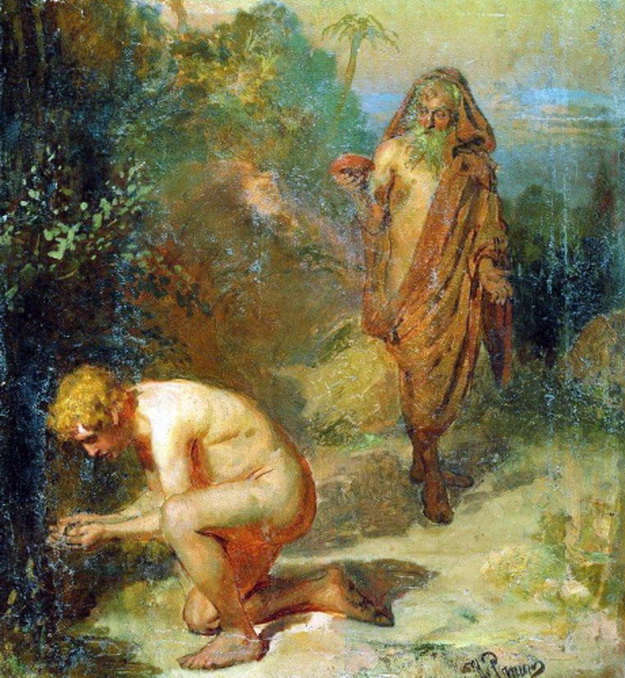
After the death of the teacher, the affairs of Diogenes became very bad, the townspeople believed that he had lost his mind, as evidenced by his vulgar regular antics. It is known that Diogenes publicly engaged in masturbation, declaring that it would be great if hunger could be quenched by stroking his stomach.
During a conversation with Alexander the Great, the philosopher called himself a dog, but this is what Diogenes called himself before. Once, several townspeople threw him a bone like a dog and wanted to force him to gnaw it. However, they could not predict the result - like a dog, Diogenes took revenge on bullies and offenders by urinating on them.
There were also less extravagant performances. Seeing an inept archer, Diogenes sat down near the target, saying that this was the safest place. And he stood naked in the rain. When the townspeople tried to take Diogenes under a shed, Plato said that it was not worth it: the best help to Diogenes' vanity would be to not touch him.
The history of disagreements between Plato and Diogenes is interesting, but Diogenes only once managed to really beautifully beat his opponent - this is the case of Plato's man and the plucked chicken. In other cases, the victory remained with Plato. Modern scholars are of the opinion that the native of Sinop was simply jealous of his more successful opponent.
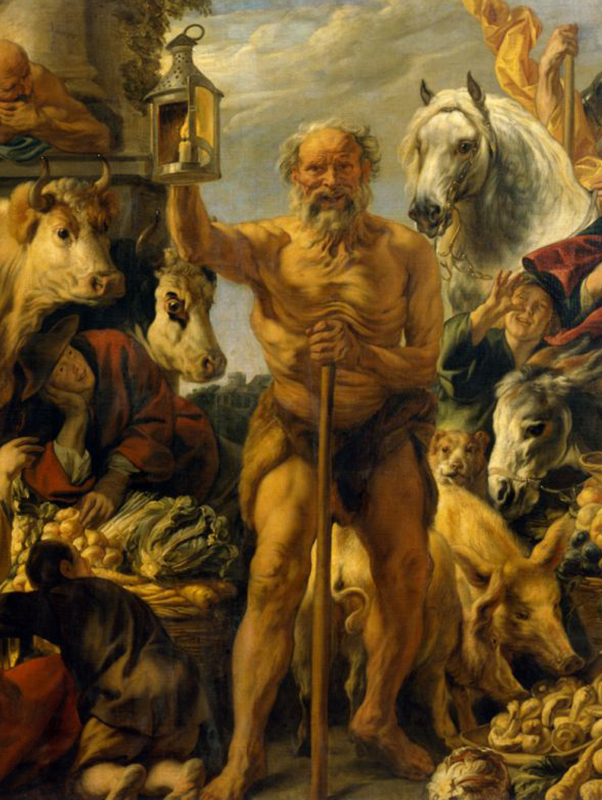
It is also known about the conflict with other philosophers, including Anaximenes of Lampsakus and Aristippus. Between skirmishes with competitors, Diogenes continued to play weird and answer people's questions. One of the eccentricities of the philosopher gave the name to another popular expression - "the lantern of Diogenes." The philosopher walked around the square with a lantern during the day, exclaiming: "I am looking for a man." Thus, he expressed his attitude towards the people around him. About the inhabitants of Athens, Diogenes often spoke unflatteringly. One day the philosopher started to lecture in the marketplace, but no one listened to him. Then he squealed like a bird, and a crowd immediately gathered around him. “This is the level of your development,” Diogenes said, “when I said smart things, they ignored me, but when I squealed like a rooster, everyone began to watch with interest.”
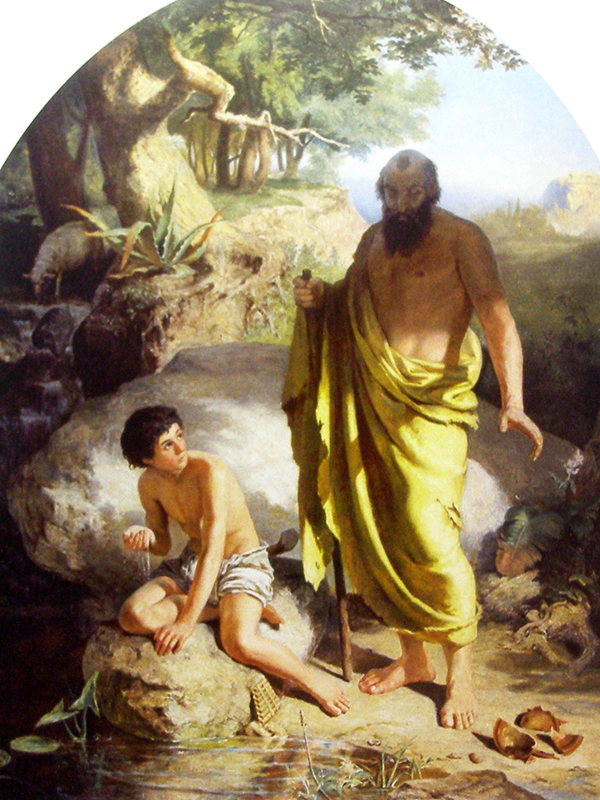
When the military conflict of the Greeks with the Macedonian king Philip II began, Diogenes left Athens, going by ship to the shores of Aegina. However, it was not possible to get there - the ship was captured by pirates, and everyone on it was either killed or captured.
From captivity, Diogenes was sent to the slave market, where he was acquired by the Corinthian Xeanides in order for the philosopher to teach his children. It is worth noting that Diogenes was a good teacher - in addition to riding, throwing darts, history and Greek literature, the philosopher taught the children of Xeanides to eat and dress modestly, as well as exercise to maintain their physical shape and health.
Students and acquaintances offered the philosopher to redeem him from slavery, but he refused, arguing that this allegedly illustrates the fact that even in slavery he can be "the master of his master." In fact, Diogenes was happy to have a roof over his head and regular meals.
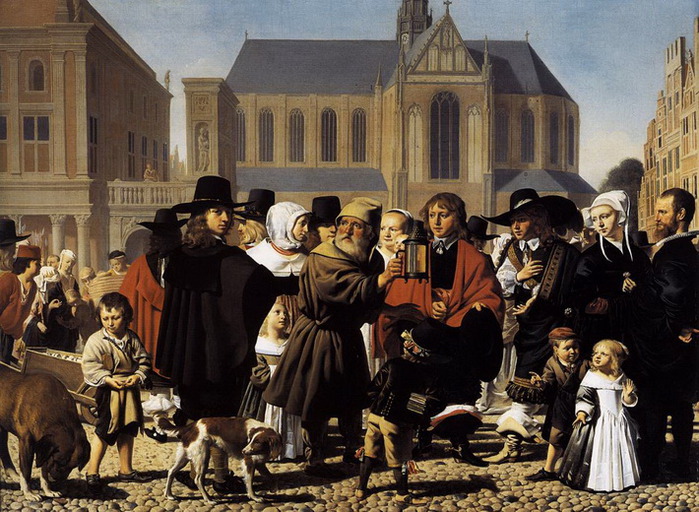
The philosopher died on June 10, 323, being a slave to Xeanid. They buried Diogenes face down - as requested. On his grave, in Corinth, there is a tombstone made of Parian marble with words of gratitude from the disciples and wishes of eternal glory. Also, a dog was made of marble, symbolizing the life of Diogenes. Diogenes introduced himself as a dog to Alexander the Great when the Macedonian king decided to get acquainted with the famous marginal philosopher. To Alexander's question: "Why a dog?" Diogenes answered simply: “Whoever throws a piece, I wag him; To a playful question about the breed of the dog, the philosopher also answered without being wiser: “When hungry - Maltese (i.e. affectionate), when full - Milo (i.e. evil).”
Diogenes denied the family and the state, arguing that children and wives are common, and there are no borders between countries. Based on this, it is difficult to establish the biological children of the philosopher.
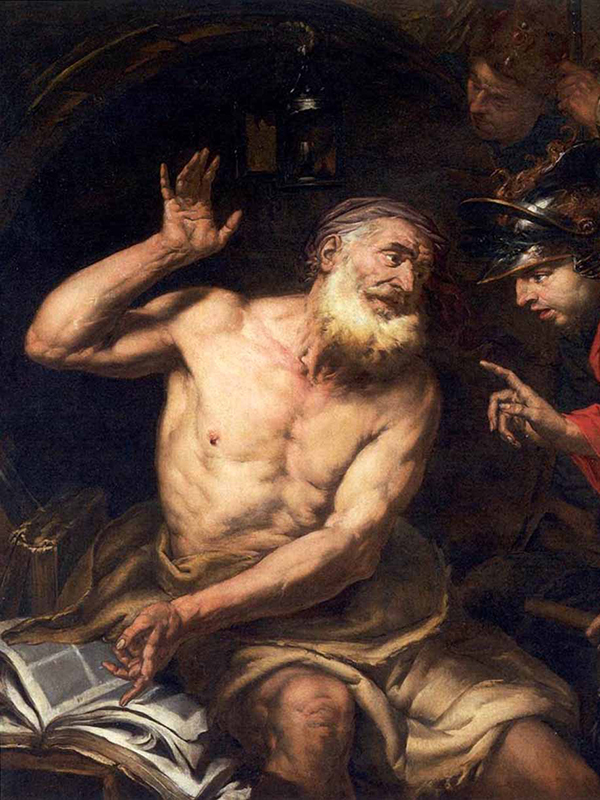
According to the book of the bibliographer Diogenes Laertes, the philosopher from Sinop left behind 14 philosophical works and 2 tragedies (in some sources, the number of tragedies increases to 7). Most of them have survived thanks to other writers and philosophers who use the sayings and sayings of Diogenes. The surviving writings include "On Wealth", "On Virtue", "The Athenian People", "The Science of Morality" and "On Death", and among the tragedies - "Hercules" and "Helen".
Interesting facts from the life of Diogenes:
* Diogenes actually lived not in a barrel, as many believe, but in a pithos - an earthen vessel for storing grain. The wooden barrel was invented by the Romans 5 centuries after the death of Diogenes.
* Once a very rich man invited Diogenes to his luxurious house and warned him: “Look how clean it is in my house, don’t try to spit somewhere.” After inspecting the dwelling and marveling at its beauty, Diogenes approached the owner and spat in his face, declaring that this was the dirtiest place he had found.
* Diogenes often had to beg, but he did not ask for alms, but demanded: "Fools, give to the philosopher, because he teaches you to live!"
* When the Athenians were busy preparing for the war with Philip of Macedon and there was fuss and excitement around, Diogenes began to roll his pithos through the streets. Many asked him why he was doing this, to which Diogenes replied: "Everyone is busy with business, and so am I."
*When Alexander the Great conquered Attica, he decided to personally meet Diogenes and came to him with an offer to fulfill any desire. Diogenes asked him to move away so as not to obscure the sun. To which the commander remarked that if he had not been Alexander the Great, he would have become Diogenes.
* Once, returning from Olympia, when asked if there were many people there, Diogenes said: “There are a lot of people, but there are no people.”
* And another time, going out to the square, he began to shout: “Hey, people, people!”, But when the people ran, he began to drive them away with a stick, saying: “I called people, not scoundrels.”
* Seeing the son of a prostitute throwing stones at the crowd, Diogenes said: "Beware of hitting your father!"
* After Plato defined man as an animal walking on two legs and devoid of wool and feathers, Diogenes brought a plucked rooster to his school and released him, solemnly proclaiming: “Now you are a man!” Plato had to add the phrase "... and with flat nails" to the definition.
*During his lifetime, Diogenes was often called a dog for his behavior, and this animal became a symbol of the Cynics - the followers of Diogenes.
*A monument in the form of a dog standing on a column was erected on the grave of Diogenes in Corinth.
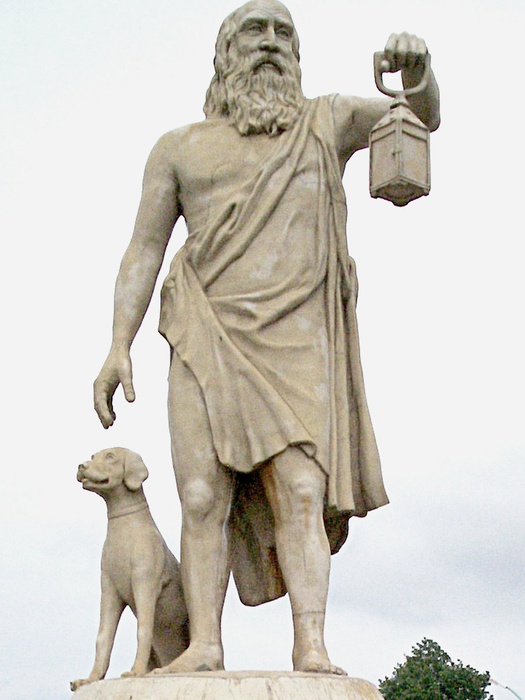
Quotes and sayings of Diogenes of Sinop:
1. When the philosopher Diogenes needed money, he did not say that he would borrow it from friends; he said that he would ask his friends to return the debt to him.
2. To a man who asked what time you should have breakfast, Diogenes answered: “If you are rich, then when you want, if you are poor, then when you can.
3. “Poverty itself paves the way to philosophy. What philosophy tries to convince in words, poverty forces to carry out in practice.
4. "Philosophy and medicine have made man the most intelligent of animals, divination and astrology - the most insane, superstition and despotism - the most unfortunate."
5. When asked where he came from, Diogenes said: "I am a citizen of the world."
6. Seeing the gossiping women, Diogenes said: "One viper borrows poison from another."
7. "Treat the nobles like fire: do not stand either very close or very far from them."
8. When asked at what age one should marry, Diogenes replied: “It’s too early for the young, it’s too late for the old.”
9. "The slanderer is the most fierce of wild animals."
10. "Teaching an old man is like treating a dead man."
11. "If you give to others, give to me, if not, then start with me."
12. "When extending your hand to friends, do not clench your fingers into a fist."
13. "Love is the business of those who have nothing to do."
14. "Philosophy gives readiness for any turn of fate."
15. "Death is not evil, for there is no dishonor in it."
16. "To be in a good mood is to cause torment to your envious people."
17. "Voluptuousness is the occupation of people who are not busy with anything else."
18. "Those who keep animals must admit that they are more likely to serve animals than animals to them."
19. "In order to live properly, one must have either reason or a noose."
20. "The flatterer is the most dangerous of tame animals."
